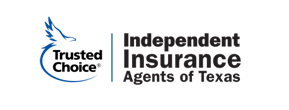Employee Benefits
Employee benefits are additional forms of compensation and perks provided by employers to their employees, beyond the regular salary or wages. These benefits are designed to enhance the overall compensation package and create a more attractive and competitive work environment. Employee benefits can vary widely from one organization to another, but they typically aim to improve the well-being, job satisfaction, and quality of life for employees. Some common types of employee benefits include:
-
Healthcare Benefits: These include medical, dental, and vision insurance plans that help employees cover the costs of healthcare services, prescriptions, and preventive care.
-
Retirement Benefits: Such as pension plans, 401(k) plans, or other retirement savings accounts that allow employees to save for their future financial security.
-
Paid Time Off (PTO): This includes vacation days, sick leave, and holidays. PTO policies vary, but they generally provide employees with paid time away from work for various reasons.
-
Flexible Work Arrangements: Options like remote work, flexible hours, or compressed workweeks that allow employees to achieve a better work-life balance.
-
Wellness Programs: Initiatives that promote employee well-being, such as gym memberships, wellness challenges, counseling services, and health screenings.
-
Education and Professional Development: Opportunities for employees to enhance their skills and knowledge through tuition assistance, training programs, workshops, and conferences.
-
Childcare and Family Benefits: Support for employees with families, such as childcare subsidies, parental leave, and family-friendly policies.
-
Employee Assistance Programs (EAPs): Services that provide confidential counseling and support to employees facing personal or work-related challenges.
-
Life and Disability Insurance: Coverage that provides financial protection in the event of an employee's death or disability.
-
Stock Options and Equity: Ownership in the company through stock options, restricted stock units (RSUs), or other equity-based compensation.
-
Bonuses and Incentives: Additional financial rewards based on individual or company performance.
-
Commuter Benefits: Assistance with commuting expenses, such as public transportation subsidies or parking allowances.
-
Legal Assistance: Legal services or resources to help employees with personal legal matters.
-
Employee Recognition Programs: Initiatives that acknowledge and reward exceptional employee performance and contributions.
-
Social Activities and Events: Company-sponsored events, team-building activities, and social gatherings that foster a sense of community among employees.
Effective employee benefits can contribute to higher job satisfaction, increased employee loyalty, and improved retention rates. Offering a comprehensive and competitive benefits package can also help attract top talent and create a positive employer brand. It's important for employers to tailor their benefits offerings to the needs and preferences of their workforce while remaining compliant with relevant employment laws and regulations.







